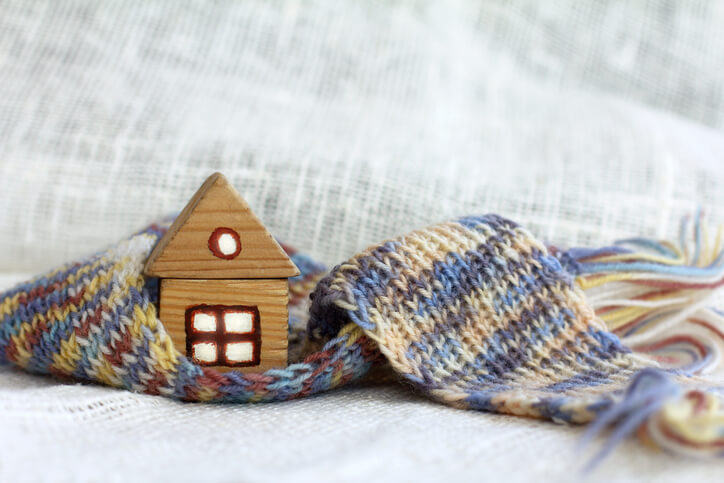Winter storms can be a nice time to cozy up with your family and take a moment to relax until the storm subsides. However, if the power goes out, you can be facing a night of dangerously low temperatures. To ensure you have access to heat, prepare some alternative heating options so you can enjoy the storm without worry.
Spoor’s Heating & Air Conditioning is providing these tips on alternative home heating systems to keep you warm and safe all winter long.
Schedule an appointment today for HVAC maintenance to ensure your heater and furnace is up to snuff while the electricity is on.

Portable Propane Heaters
Portable heaters that run on propane are a simple and relatively safe option for space heating without the need for electricity. However, make sure that any unit you select is rated for indoor use. Also, be sure to connect the propane tank and heater outside to avoid indoor gas leaks, which can be hazardous. You should also prioritize units that offer features such as tip-over shut-off and an oxygen depletion sensor. Portable propane heaters are easy to maintain year-round, so they’re ready when you need them.
Wood Burning Stove
If you’re lucky enough to have a wood-burning stove in your home, they can be an excellent way to heat your entire house while also providing a stovetop that doesn’t require electricity to cook on during a power outage. Even if you don’t have one, they’re easy enough to install, especially if your home already has a chimney flue. When choosing a wood-burning stove, pay attention to the energy efficiency and if it requires additional electricity to work. Kindling will need to be prepared in advance of a winter storm, and maintenance will be required annually and can be quite messy.
Fireplaces
Fireplaces are great for keeping the whole house warm during winter. However, a fireplace isn’t contained like a wood-burning stove, so you’ll want to keep that in mind, especially if you have children or pets. Also similar to wood-burning stoves, you’ll need to prepare wood for burning in advance and fireplaces require annual chimney cleanings to avoid chimney fires or carbon monoxide poisoning.
Get Creative
If you’re out of options and need emergency heating, use what’s available to you. If the power goes out during the day, utilize thermal energy by placing rocks and bricks in direct sunlight to store the heat. Once the sun goes down, close the blinds and drapes to help with insulation. If you have access to hot water, fill up sinks and tubs — just make sure to empty them before the water gets too cold. Also, wool or fleece blankets and clothing hold in heat the best, so use that to layer your body. While candles may seem like a good idea, they can result in carbon monoxide poisoning if there is poor ventilation, so be sure to limit usage.
If you start to notice your heating system working inefficiently, be sure to get in touch with our HVAC technicians as soon as possible! While we do perform emergency HVAC repairs, the best way to avoid HVAC failure is with planned HVAC maintenance. With a wide range of services available, our team is happy to help with any heating repairs or other HVAC issues you may have. Get in touch with us today to learn more!
